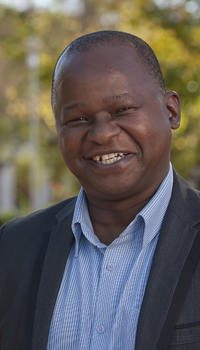Latest News Archive
Please select Category, Year, and then Month to display items
03 March 2021
|
Story Giselle Baillie
|
Photo Supplied
_web.jpg?sfvrsn=987e6620_1) Residence members who led the project, included:
Bohlokwa Rantja, the Residence Prime, and Transformation Committee members Nsuku Mutemela, Ofentse Motlakeng, Phindile Tjale, Madinku Mabala, Mmapopi Motshoso, Karabo Shuping, and Tagane Sekete.
Residence members who led the project, included:
Bohlokwa Rantja, the Residence Prime, and Transformation Committee members Nsuku Mutemela, Ofentse Motlakeng, Phindile Tjale, Madinku Mabala, Mmapopi Motshoso, Karabo Shuping, and Tagane Sekete.
The University of the Free State (UFS) Council approved and adopted Lehakwe House as the new name for the
NJ van der Merwe residence on the Bloemfontein Campus. The approval on 26 November 2020 followed a lengthy process of deliberation, consultation, and public engagement that has taken place since November 2019 and is aligned with the UFS Policy on Naming and Renaming. The name-change process was initiated by the Prime and Transformation Committee of the residence, guided by the
Unit for Institutional Change and Social Justice and supported by a multi-stakeholder committee representative of the residence, the Housing and Residence Affairs Office, the Department of Student Affairs, the Student Representative Council, and alumni.
Lehakwe – a precious gem
Following a lengthy evaluation process of the names submitted through a public voting and recommendation platform in July 2020, ‘Lehakwe’ – a Sesotho word referring to a ‘precious gem’ – emerged as the front runner. As many current and past members of the residence attest, this womxn’s residence has come to occupy a significant space within the hearts and minds of UFS students and the UFS community, given that its spirit has always been closely aligned with the constitutional values of dignity, equality, and freedom and with the human values of ubuntu. In this vein, the new name of ‘Lehakwe’ presents a consolidation of constitutional and university values into the day-to-day thinking, learning, living, and legacy spaces of students, as well as everyone who interacts and engages with the UFS.
South African citizens are yearning for a good story to tell
2014-03-13
|

Dr Sethulego Matebesi
Photo: Sonia Small |
The 20 Year Review is in essence a continuation of President Jacob Zuma’s State of the Nation Address and the ‘we have a good story to tell’ narrative. The report provides a glowing picture of successes achieved over the two decades. The successes highlighted include the basic human rights enjoyed by South Africans, a marked improvement in economic growth, and the provision of social services such as health care, education and housing. And as expected, the Review is dedicated to Nelson Mandela.
The major accomplishments were made through the strategic policies of the ruling African National Congress (ANC). For example, emphasis has been on improving the lives of South Africans through pro-poor economic interventions, in building social cohesion, investing in economic infrastructure, fighting HIV and AIDS and tuberculosis, which resulted in improved health outcomes.
Generally, the assertions about ‘accomplishments’ have been made against solid evidence and are thus not debatable. What overshadows the 20 Year Review, is the story that is not being told. This is the story of a political economy marred by rampant corruption, high levels of unemployment, declining accountability, and unresponsiveness. This untold story has become the hallmark of President Zuma’s tenure. Meanwhile, the average South African citizen is still yearning for ‘a good story to tell.’
For more political comment or to speak to Dr Matebesi, please call René-Jean van der Berg at +27(0)83 645 5940.